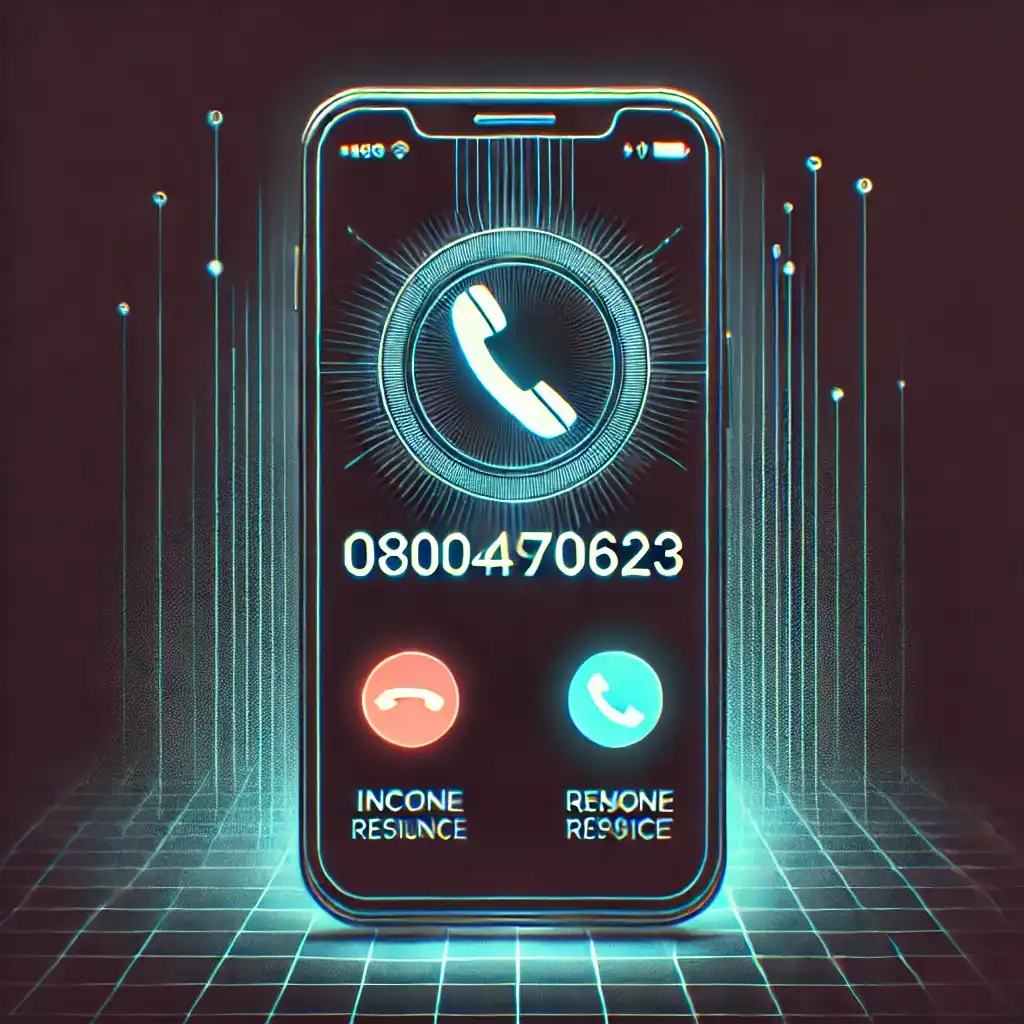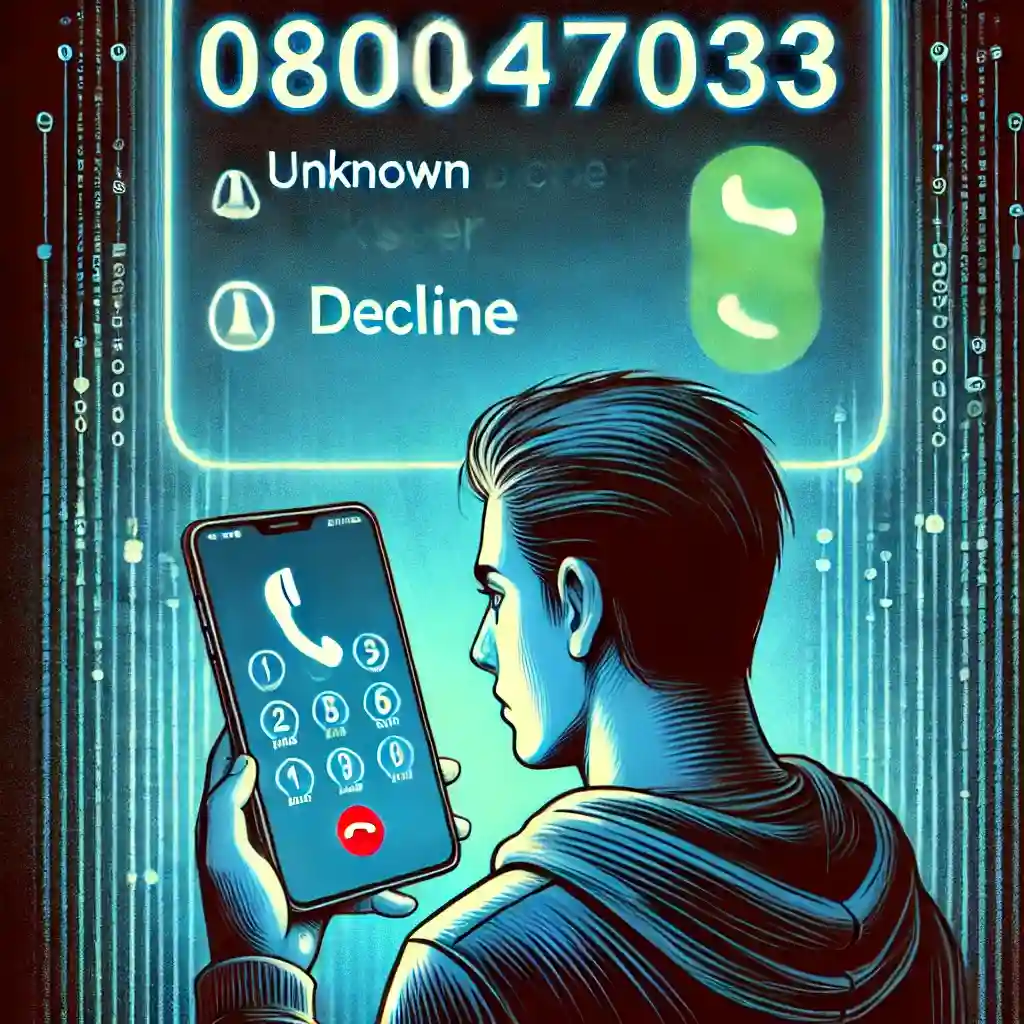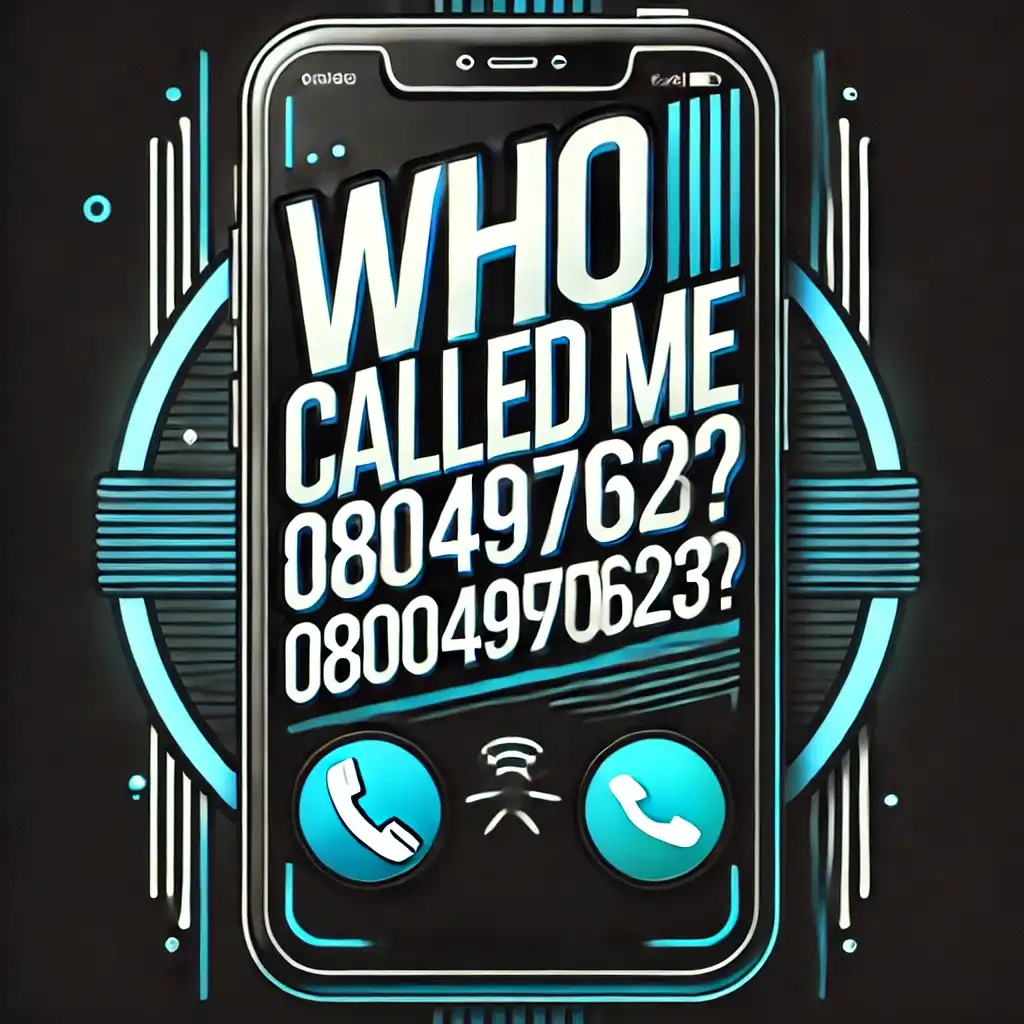In today’s fast-paced digital age, scam calls remain a persistent problem. If you have ever wondered, “who called me 08004970623?”, you are not alone. Recently, our community has flagged this number—an 0800 freephone number from the United Kingdom—as suspicious, with multiple reports and lookups suggesting that it is linked to an insurance scam. In this comprehensive article, we explore the data, analyze the scam tactics used, and offer guidance to help you stay safe.
The Rise of Scam Calls in 2025 Who Called Me 08004970623
Scam calls have evolved alongside telecommunications technology. Even in 2025, fraudsters continue to refine their methods, leveraging freephone numbers and recognizable brand names to gain trust and extract personal information. The phone number 08004970623 is one such example. With 92 user reports, over 10,680 lookups, and community ratings labeling it as dangerous and harassing, there is mounting evidence that this call is linked to an insurance scam. Often impersonating a reputable company like Domestic & General, scammers use familiar names to confuse and exploit unsuspecting customers.
This article delves into the background and details of the scam, highlights user experiences, and provides actionable advice to help you protect yourself from similar fraudulent activities.
Try our Free Spam Number Checker Tool
The Evolving Landscape of Scam Calls

The Persistent Problem of Unwanted Calls
Scam calls have long been a nuisance, but technological advances have given fraudsters new tools. In 2025, scammers use techniques such as caller ID spoofing, automated voice messages, and even text-to-speech technology to mimic legitimate companies. Their strategies often involve urgency, fear, or the promise of a reward—all intended to prompt you to reveal sensitive information.
Why Scammers Use Freephone Numbers
The use of freephone numbers, such as those starting with 0800 in the United Kingdom, is a common tactic. These numbers are free to call, making them an attractive option for fraudsters aiming to reach a wide audience without incurring costs. Unfortunately, this accessibility also means that legitimate businesses and genuine consumers are often caught in the crossfire.
The Impact on Consumers
The result is not only a loss of trust but also potential financial and personal risks. When consumers see repeated calls from a suspicious number, they begin to question the authenticity of any communication claiming to be from a well-known company. With scammers adapting their methods regularly, staying informed becomes crucial. Read this best blog post Understanding 02045720127.
Decoding 0800 4970 623—What the Data Tells Us
Key Statistics at a Glance
Community feedback plays a vital role in tracking fraudulent activities. For 0800 497 0623, the numbers speak volumes:
| Aspect | Value |
|---|---|
| Reports Received | 92 |
| Total Lookups | 10,680 |
| User Ratings | 1 Dangerous, 4 Harassing (from 26 total ratings) |
| Area Code | 0800 (Freephone) |
These figures indicate that a significant number of people have encountered calls from this number, with many rating the experience as dangerous or harassing. Such statistics underscore the urgency of understanding and addressing the threat posed by this scam.
Understanding the User Feedback
User reports and ratings provide critical insights into the scam’s modus operandi. The most frequently mentioned keywords in reports include:
- Scam (24 mentions)
- Insurance (20 mentions)
- Company (6 mentions)
- Spam (5 mentions)
- Warranty (4 mentions)
- Silent (4 mentions)
- Scammers (4 mentions)
The repeated emphasis on “scam” and “insurance” indicates that many callers have experienced aggressive tactics associated with fraudulent insurance claims. The fact that some users mention silent or harassing behavior further adds to the list of red flags.
How the Scam Operates—Inside the Caller’s Tactics
Impersonation of a Trusted Brand
One of the primary tactics used by the scammer behind 0800 497 0623 is impersonation. The caller claims to be associated with Domestic & General—a well-known insurance provider. For many years, Domestic & General has earned a reputation for reliability and quality service. However, the scammer’s attempts to leverage this reputation have backfired, as consumers familiar with the brand quickly notice discrepancies.
For example, some users have stated:
“REPEATED CALLS FROM THIS NUMBER STATING TO BE FROM DOMESTIC & GENERAL. THEY ARE SCAMMERS.”
Such statements highlight the deliberate misuse of a trusted name to induce a false sense of security.
Misrepresentation of GDPR and Regulatory Claims
In addition to impersonation, the scammer uses regulatory misdirection. One reported conversation mentioned that the caller claimed GDPR legislation required them to verify personal details. This is a classic ploy: by invoking a well-known regulation, the scammer hopes to convince the victim that sharing personal information is mandatory and secure.
However, GDPR (General Data Protection Regulation) is designed to protect your data—not to serve as an excuse for unsolicited calls or intrusive data requests. Savvy consumers quickly learn that no legitimate company will request excessive personal information over the phone, especially under the guise of regulatory compliance.
Inconsistent and Vague Information
Another common red flag is the inconsistency in the details provided by the caller. In one instance, a caller mentioned a recent purchase from a major retailer (such as Argos) and a subsequent insurance claim. However, when the victim asked for specifics, the caller’s details did not match any known purchase. For example:
“I had bought something and taken out insurance, but didn’t disclose this to him. I asked him to remind me what it was as I had purchased several items. He said it was an item costing £100, but his information didn’t specify what the item was. I didn’t purchase anything costing £100.”
Such vague descriptions are typical of scammers who are more interested in eliciting a response than providing concrete information.
The Real Impact—What Consumers Are Experiencing
Emotional and Psychological Toll
Receiving repeated scam calls can be more than just an annoyance—it can have a significant emotional impact. Many users report feelings of frustration, anxiety, and even fear. When a caller repeatedly contacts you under false pretenses, it disrupts your sense of security. The term “harassing” used in some ratings reflects this ongoing distress.
Financial Risks and the Loss of Trust
While the immediate financial risk might seem low if you do not provide your details, the longer-term implications are serious. Scammers may attempt to use personal information for identity theft, leading to financial loss. Moreover, the misuse of reputable brands like Domestic & General can erode consumer trust, impacting the broader insurance industry.
A Glimpse into the Community Experience
The community has not been silent. Some users, who once had positive experiences with Domestic & General, now voice concerns over the misuse of the company’s name:
“Domestic & General. We have done business with them for over 10 years insuring our white goods & found them very good when we have had repairs/replacement carried out. But the big problem is they let themselves down with regular sales calls looking for more business, despite telling them numerous times we will call them when we need them, not them call us.”
This statement illustrates the broader issue: even reputable companies can suffer reputational damage when fraudsters misuse their name, and loyal customers feel caught in the crossfire.
Unmasking the Techniques—A Deep Dive into Scam Tactics
Social Engineering and Psychological Manipulation
Scammers are experts in social engineering. They exploit trust, urgency, and even confusion to achieve their objectives. By masquerading as representatives of a well-known company, they lower the guard of the recipient. The use of a recognizable brand name like Domestic & General is not accidental—it’s a calculated move designed to bypass skepticism.
The Use of Pressure and Urgency
The tactics often include pressuring the recipient to respond immediately. Scammers may claim that there is a limited-time offer or that immediate action is required to secure your insurance coverage. This creates a sense of urgency that can cause even the most cautious individuals to act without proper verification.
Misleading Regulatory Claims
As mentioned earlier, invoking GDPR or other regulatory requirements is a common ruse. The scammer’s reference to regulatory mandates is intended to confuse victims, making them believe that the request for information is both necessary and legally justified. In reality, no reputable company would use such tactics, and understanding this misrepresentation is key to avoiding traps.
Repeated and Persistent Calls
Another red flag is the frequency of the calls. Some users have reported that calls from this number occur repeatedly, even after requests to be removed from the calling list. This persistence is a hallmark of scam operations that use automated dialing systems or persistent human callers.
How to Protect Yourself from Scam Calls
Given the sophisticated techniques employed by scammers, it is essential to arm yourself with knowledge and take practical steps to protect your personal information. Here are some recommended tips:
| Protection Tip | Description |
|---|---|
| Verify the Caller’s Identity | Always ask for detailed information and verify it with the official website or customer service of the company in question. |
| Do Not Provide Personal Information | Never share sensitive details such as your full name, address, or financial information unless you are sure of the caller’s legitimacy. |
| Hang Up and Call Back | If you receive an unexpected call from a company you have an account with, hang up and call back using the official number listed on their website. |
| Use Call-Blocking Apps | Consider installing reputable call-blocking software that can flag known scam numbers and reduce unwanted calls. |
| Report Suspicious Calls | Report any scam calls to your phone provider or regulatory bodies. Your feedback can help protect others from falling victim. |
| Stay Informed About Scam Trends | Regularly check trusted sources for updates on new scam techniques and learn about the latest fraud prevention tips. |
By following these guidelines, you can reduce the risk of falling prey to scams and maintain control over your personal information. Read previous post also Understanding the Mystery Behind 02031376317 Who Called Me.
What to Do If You Receive a Suspicious Call

If you answer a call from 0800 497 0623 or any other number that seems suspicious, consider the following steps:
- Do Not Engage:
Politely hang up if the caller asks for personal or financial information without proper identification. Do not be drawn into a conversation that seems scripted or vague. - Verify the Claim:
If the caller claims to be from a company like Domestic & General, use the official website or customer support number to verify the claim. Never use contact details provided during the call. - Document the Call:
Note the time, date, and any information provided by the caller. This can be useful if you decide to report the call later. - Report the Incident:
Report the call to your phone provider, local consumer protection agency, or regulatory bodies. Many countries have specific channels for reporting scam calls, which can help authorities track and shut down fraudulent operations. - Educate Family and Friends:
Share your experience with others. Informing your network about common scam techniques can help prevent them from falling victim to similar tactics.
By following these steps, you not only protect yourself but also contribute to a broader community effort against scam callers.
The Role of Community Feedback in Combating Scam Calls
The Power of Collective Reporting
Community feedback has become an invaluable resource in the fight against scam calls. When multiple users report a suspicious number, it creates a data trail that can alert others and prompt further investigation by authorities. For example, the 92 reports and 10,680 lookups for 0800 497 0623 serve as a warning to consumers and highlight the need for vigilance.
How User Ratings Influence Trust
In our case, community ratings have flagged this number as both dangerous and harassing. Even a few negative ratings can be significant when they reflect a pattern of behavior that many consumers have experienced. When users see that others have encountered similar issues, they are more likely to exercise caution.
Leveraging Reviews and Ratings for Protection
Platforms that aggregate user reports and ratings help create a centralized database of suspicious numbers. This information is accessible to anyone who might be contacted by a scammer, thus acting as a first line of defense. Your active participation—by reporting unwanted calls—can help build a stronger, more informed community response to these scams.
The Future Outlook—Regulatory and Technological Measures
Advancements in Telecom Security
The ongoing battle against scam calls has prompted significant investments in telecommunications security. In 2025, telecom companies are working closely with regulatory bodies to develop new technologies aimed at filtering and blocking scam calls before they reach consumers. Innovations in caller ID verification, artificial intelligence, and real-time call monitoring are already making a difference.
Strengthening Regulatory Frameworks
Regulatory bodies are continuously updating guidelines to better protect consumers. For instance, stricter regulations around caller ID spoofing and the use of freephone numbers are under discussion in many jurisdictions. By holding companies and scammers accountable, these measures aim to reduce the frequency and impact of fraudulent calls.
Public Awareness and Education
As scammers become more sophisticated, public education remains a key defense. Regular awareness campaigns, accessible online resources, and community-based reporting systems all play a role in informing the public about scam tactics. Being aware of common phrases and tactics—such as the misuse of GDPR or vague purchase details—can help you identify a scam call before any harm is done.
Bringing It All Together—A Final Word on 0800 497 0623
Summary of Key Points
To summarize:
- Who Called Me 08004970623?
Many consumers have reported that this number is linked to scam calls, with detailed community feedback and statistical data underscoring its dubious nature. - What Are the Main Red Flags?
The repeated use of a reputable name (Domestic & General), vague and inconsistent call details, misrepresentation of regulatory requirements, and aggressive, repeated calling patterns are all significant red flags. - How Can You Protect Yourself?
Always verify the caller’s identity, do not provide personal information, and report suspicious activity. Utilizing call-blocking apps and following established consumer protection guidelines can further reduce your risk.
The Broader Implications for Consumers
The case of 0800 497 0623 is not an isolated incident—it is part of a broader trend of sophisticated scams that prey on consumer trust and the inherent vulnerabilities of telephone communication. As scammers become increasingly adept at manipulating recognizable brand names and regulatory terms, the importance of consumer education and vigilance cannot be overstated.
Taking Action: Your Role in the Fight Against Scammers
Every time you receive a suspicious call, remember that your actions can have a ripple effect. By choosing not to engage and by reporting the incident, you contribute to a collective effort that helps safeguard others from similar scams. In our interconnected digital age, community awareness is a powerful tool in the fight against fraud.
The Road Ahead
Looking to the future, ongoing collaboration between telecom providers, regulatory agencies, and the consumer community will be critical. Advancements in technology and stronger regulatory measures are already beginning to turn the tide against scam calls. However, staying informed remains the most effective defense.
For anyone wondering “who called me 08004970623?”, the evidence points to a scam operation using a familiar name to dupe unsuspecting consumers. By understanding the tactics employed and by taking proactive steps, you can protect your personal data and help expose fraudulent activities.

